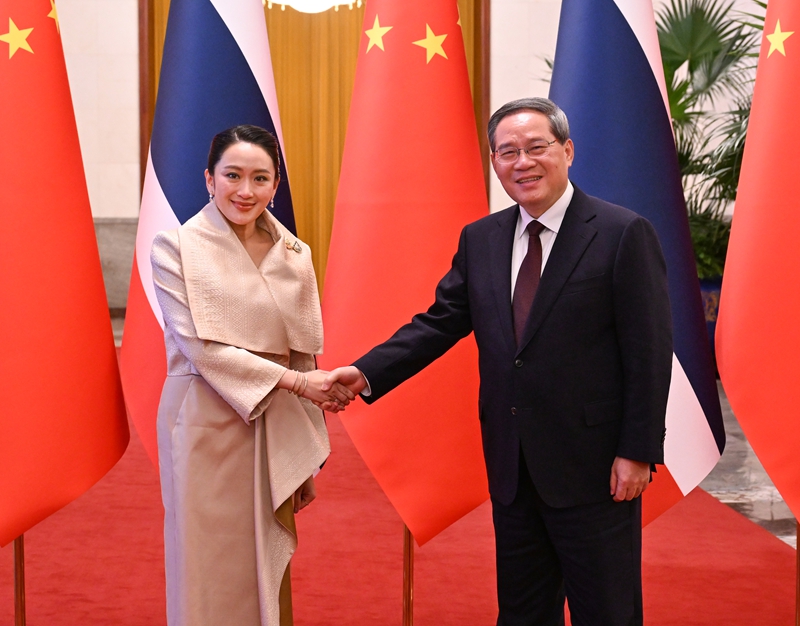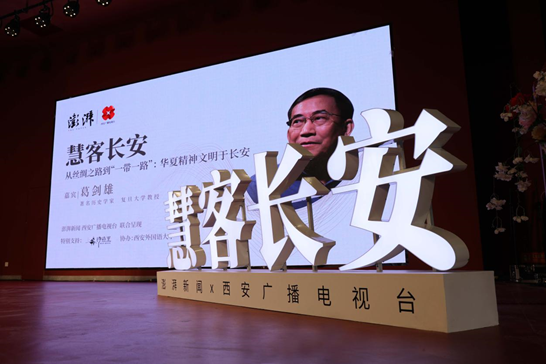Targeting The Risk Points Of Enterprises Going Overseas, How Can Insurance Accurately Protect It? Upgrade, Innovation, Customization Into Keywords
Targeting The Risk Points Of Enterprises Going Overseas, How Can Insurance Accurately Protect It? Upgrade, Innovation, Customization Into Keywords
As Chinese enterprises' overseas travel model leap from "capital overseas" to "product overseas", the risks of enterprises' globalization journey are changing. Recently, Zeng Wanli, CEO of Allianz Commercial Insurance Greater China, said at the 2025 Allianz China Summit
As Chinese enterprises' overseas travel model leap from "capital overseas" to "product overseas", the risks of enterprises' globalization journey are changing.
Recently, Zeng Wanli, CEO of Allianz Commercial Insurance Greater China, said at the 2025 Allianz China Summit that the risks of Chinese companies going overseas are expanding from traditional property insurance and liability insurance to compound risks such as network security and supply chain restructuring. Insurance institutions help enterprises build a more resilient global operation system by innovating insurance products (such as cybersecurity insurance, ART alternative risk transfer tools), upgrading their underwriting capabilities and providing customized solutions.
The reporter noticed that in addition to underwriting non-auto insurance types overseas, leading insurance institutions have followed the pace of new energy vehicle companies going overseas and accelerated the overseas business layout of new energy vehicle insurance. According to the 2025 interim report of China Insurance, the new energy vehicle insurance overseas projects have been launched in Hong Kong and Thailand, China. In addition, insurance companies have innovated the reinsurance cooperation model and achieved experience in new energy vehicle insurance pricing and claims management.
Trade enterprises face risks such as network security and supply chain restructuring when going overseas
"Global commodity trade will not shrink in 2025, but the growth rate will slow down significantly. It is expected to grow by only 0.3% by value." Huang Liyang, an economist at Allianz Group, said when analyzing new global economic and trade trends that although the actual impact of current tariffs on trade is lower than expected, structural challenges continue to exist. Coupled with the multipolar evolution of geopolitics and the comprehensive refresh of the supply chain system, it continues to promote the transformation of the global trade pattern, and uncertainty is expected to continue until 2026.
"The uncertainty of policies and regulations, the reshaping of the global competitive landscape and the transformation of the public opinion environment are the three core risks facing enterprises going overseas." Ma Jun, global intellectual property director of Trina Solar, pointed out that the restrictions on US market access, EU localization policy support, and the improvement of consumer sustainability requirements all put higher requirements on corporate strategies. He stressed that enterprises should carry out intellectual property layout and compliance system construction in advance to cope with the increasingly complex technological and trade barriers.
With the changes in trade trends, the insurance industry has also made positive adjustments to provide risk protection. "When a large number of Chinese companies went public in the United States more than ten years ago, the company underwritten a lot of director liability insurance; with the development of China's manufacturing, the company provided a lot of product liability insurance; with the solid advancement of high-quality joint construction of the Belt and Road Initiative, the company provided insurance services for overseas engineering projects." Zeng Wanli observed that in recent years, the scope and depth of Chinese companies' overseas risks have increased compared with the past.
Specifically, first, the geographical scope of risks has expanded. Previous risk events have been mainly concentrated in North America. In recent years, with the diversified development of business, the frequency of risk events in Europe, Australia, Southeast Asia and other regions has also shown an upward trend; second, the total amount and structure of insurance demand have changed. In the past, enterprises mainly purchased insurance products mandatory by destinations. Now, more and more enterprises actively seek insurance solutions based on their own risk characteristics, such as various liability insurance, network security insurance, etc.; third, due to geopolitical factors, many enterprises have transferred their supply chains from China to abroad, building factories and recruiting employees in new regions. During the supply chain restructuring process, enterprises face new risks when operating in a new environment.
"The risks of overseas Chinese companies are expanding from traditional property insurance and liability insurance to compound risks such as network security and supply chain restructuring." Zeng Wanli suggested that overseas companies should regard insurance as an important part of risk control, rather than a means of post-remediation.
Escort the internationalization of new energy vehicle companies, and leading institutions are the first to "go global"
In recent years, the internationalization process of new energy vehicle companies has continued to accelerate, and new breakthroughs have also been made in insurance to escort new energy vehicle companies to "go global".
At this year's interim performance conference, the management of PICC Property Insurance stated that the company successfully achieved the first order of new energy auto insurance business in Hong Kong in early 2025 in accordance with the three-step regional development strategy of "focusing on Hong Kong, exploring Asia, and planning the world", becoming the first insurance company in the industry to carry out new energy auto insurance business overseas. In the first half of this year, the project has underwritten more than 1,000 Chinese brand new energy vehicles in Hong Kong, with the current compensation rate of about 50%. In June this year, the company selected Thailand as the second stop for overseas business in light of China's new energy vehicle export layout, successfully realizing the first order of Thailand's business, taking a key step for the company's auto insurance services to go overseas.
Regarding the pain points faced by new energy vehicle companies going overseas, a relevant person in charge of China Taiping Property Insurance said in an interview with a reporter from the "Daily Economic News" that it was learned through Thai market research that Chinese new energy vehicle companies face three outstanding problems overseas:
First, the supply of auto insurance is insufficient, the weak maintenance capacity of new energy vehicles pushes up claims costs, local insurance companies lack pricing experience, high premiums and even unwilling to underwrite; second, financial support affects sales, insurance in the Thai market is donated by auto companies in the first year, and automobile consumption depends on financial loans, and it needs to provide attractive financial insurance products to help sales; third, the voice is weak, and Japanese brands account for 90% of the Thai auto market in 2023. Chinese auto companies urgently need insurance companies to help improve their service system and improve their ecological voice in terms of data support, accident car management, claims efficiency, etc., but local insurance companies have low cooperation and urgently need domestic financial insurance support.
"At present, most overseas businesses in China are non-auto insurance types. The risks and operating models of auto insurance are obvious: from the perspective of risk attributes, auto insurance mainly disperses risks at high frequency, with small losses in a single case but high frequency of occurrence, which is different from non-auto insurance in finance and industrial industries. In terms of operating models, auto insurance relies on localized service networks and teams. These differences make the biggest challenge for auto insurance to go overseas is to establish local operation capabilities." The above-mentioned person in charge added.
According to data released by the China Association of Automobile Manufacturers, my country exported 1.308 million new energy vehicles in the first seven months of this year, a significant increase of 84.6% year-on-year. "China's new energy vehicle exports continue to maintain a strong growth trend, providing a solid market foundation for the expansion of overseas auto insurance business and bringing major development opportunities." The management of PICC Property Insurance expects that overseas auto insurance business will become the company's new business growth highlight.





